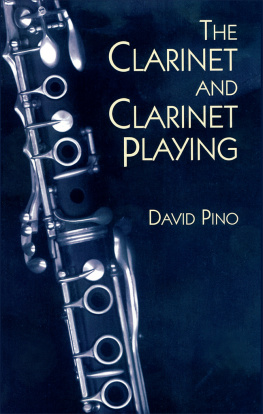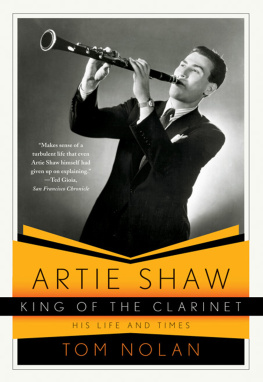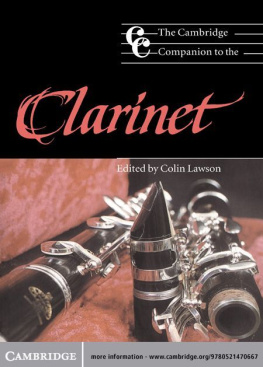SUDDEN MUSIC
Sudden music
IMPROVISATION, SOUND, NATURE
David Rothenberg

Published by the University of Georgia Press
Athens, Georgia 30602
2002 by David Rothenberg
All rights reserved
Designed by Erin Kirk New
Set in 10.5 on 15 Minion by G&S Typesetters
Printed and bound by Thomson-Shore
The paper in this book meets the guidelines for permanence and durability of the Committee on Production Guidelines for Book Longevity of the Council on Library Resources.
Printed in the United States of America
06 05 04 03 02 C 5 4 3 2 1
Library of Congress Cataloging-in-Publication Data
Rothenberg, David, 1962
Sudden music : improvisation, sound, nature / David Rothenberg.
p. cm.
Discography: p.
Includes bibliographical references (p. ).
ISBN 0-8203-2318-7 (alk. paper)
1. MusicPhilosophy and aesthetics. 2. Improvisation (Music)
3. Nature (Aesthetics) I. Title.
ML3877 .R68 2002
781.36dc21 2001027721
British Library Cataloging-in-Publication Data available
FOR IVAN
CONTENTS
SUDDEN MUSIC
CHANCE DESIGNS
The wind breathes in from the window, sending paper swirling in the room. The trees are bent, leaves blow down. There is no particular pattern to this movement, except that each year it happens around the same time. Although the forces of nature seem to work in cycles, they do not decide things and then act them out. Rather, they play with rules they cant escape, providing endless variation that still lies within a plan. These are the best kind of plans to have: those that allow sudden surprises that you never tire of, without ending in lives of total chaos.
This is a book about improvisation, in music, life, and nature. It is not meant to be a method for how to live spontaneously or how to create in the moment. No, it is more about seeing the world as a confluence of sudden happenings, where the order we discover emerges as the result of chance. This book is an account of incidents that have led me to create, or that convinced me that sudden music is the most beautiful music, both literally as something to play and figuratively as a way to hear the whole world as a musical happening, making each step forward a musical gesture, a part in the song of the world.
The poet and the improviser alike look for connections among things so seemingly incongruous that at first contact they seem to make no sense. A black crow on white snow. A dead convertible in the mud flats. A centipede dashing out of the floppy drive. A blossom in the cement. Their impulse is to find meaning everywhere, in everything from the smallest coincidence to the greatest mistake. The improviser does not dwell on any one decision before seeking openly to find the next. The method may not generate any result of deep or great structure. But it keeps ones attentiveness alive.
I write as a musician, ecologist, and philosopher, trying to speak with some authority on the ways these roles fit together and each vantage point informs the other. I cannot plan the linkages of these worlds. They sometimes simply happen. Often they pass each other aimlessly at night.
I want to create a musical path into the richly present rhythms of the world. It is difficult to explain or map out. The confusion of the world rages on past the fading away of a lone persons easy routes through it. The musical moment is one that captures ambiguity, rather than reducing reality to an easy chord. We do not know the universe any better if we imagine that even the unexpected happenings can be somehow contained within rules. We are better off when we know just where the rules stop, and where we are left to sudden invention given the very little that we are ever able to know. There is no preparation for the improvising life besides learning glimmers of the background rules and not being afraid to bend them to fit the changing situation. I would not say push and pull the rules a bit so as to stay in a game that continually evolves. No, this is not a plea for moderation. The interesting life is not always a balanced life. Take risks for their sake alone.
It is easy to find this urgency when youre moving around, trying to figure out why you cannot keep still. The tourist, wrote Paul Bowles in The Sheltering Sky, has a planned itinerary, a fixed vacation, and knows where and how long he will be gone. The traveler, in contrast, has absolutely no idea where he is going, how long it will take, or when, if ever, he will return.
This book is a recital of travels: musical, natural; some specific, others general. It is a guide for the perplexed in me, and hopefully for the uncertainties in you, too. How do we maintain the joys of spontaneity and sudden creativity when there is so much we are told we have to accomplish? Life is supposed to have a beginning, middle, and end, and yet we strive to create works that will last forever, to contribute to culture and the world in a way that will last beyond our brief lifetimes. What results is never what we planned. How can we make the most of this doubt?
My aim is to build on my experience as an improviserin music, in listening to the worldto suggest that there is a way to learn from suddenness to make the most out of a life. If we are able to respond nimbly to situations, sounds, and changes in direction that cannot be foreseen, we will know what to practice. Listen to the voices around you that are not your own, and learn when to play and when to sit one out.
Hold on to connections between things; when they surprise you, think about why you didnt expect things to come together just there. When a chance encounterwhether between people, places, ideas, or opposites that dont want to attractseems way beyond the odds, hold on to it, realize youve just beaten the system. This is the way the world works. Chance favors all of us if we know when to accept it. The trick is to decide which such encounters are worth remembering, transformed into art. You want to become the thread that weaves through all that fraying real fabric. That is your story, your song.
Take two sounds that have nothing at all to do with one another: an eagles cry and a passing train; the screech of chalk on a blackboard and a major chord. Figure out how to build a piece that makes use of both.
Dont plan it out, just go. This is improvisationit will happen without the studied plan. You constantly train for it, and then youre ready. To hear, to see, to bring the disparate and far-flung together in an instant youve prepared for all your life: this is improvisation.
Pick any two places, with nothing in common save that you have been there. Jumbesi, Nepal? Iona, Scotland? Layer them upon each other, and listen. What sort of music do you hear? This will be your melody, your strand.
When I was twenty years old I spent some months living in Nepal, a semester away from the confines of a college education. Unsure what to do once I got there, I decided, after hanging around the exiled Tibetan Buddhist monasteries at the eastern edge of Katmandu, to investigate some of the distant details of Tibetan music. As a clarinetist, I was intrigued with the Tibetan wind instrument the gyaling, a conical-bored instrument with a double reed that is always played in pairs. Repeating seemingly endless meandering melodies, players breathe quickly in through the nose as they continue the flow of air into the instrument, allowing a continuous sound that has no need ever to stop: a technique known as circular breathing.
Like any unfamiliar music, the tunes of the gyaling at first sounded all alike to my untrained ear. Only with careful study did I come to hear distinct melodic differences. All the music was made out of material covering less than one octave, only six notes. But that was enough. We choose our constraints, as Stravinsky said, to allow the greatest freedom of expression. Set the rulesthen play among them.
Next page











